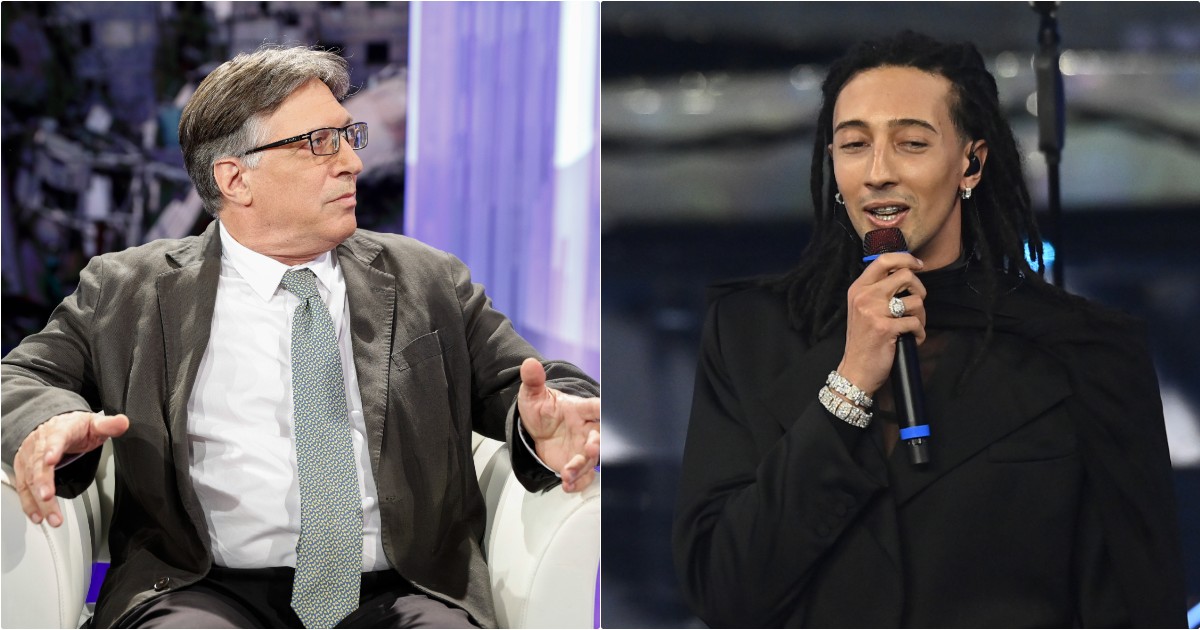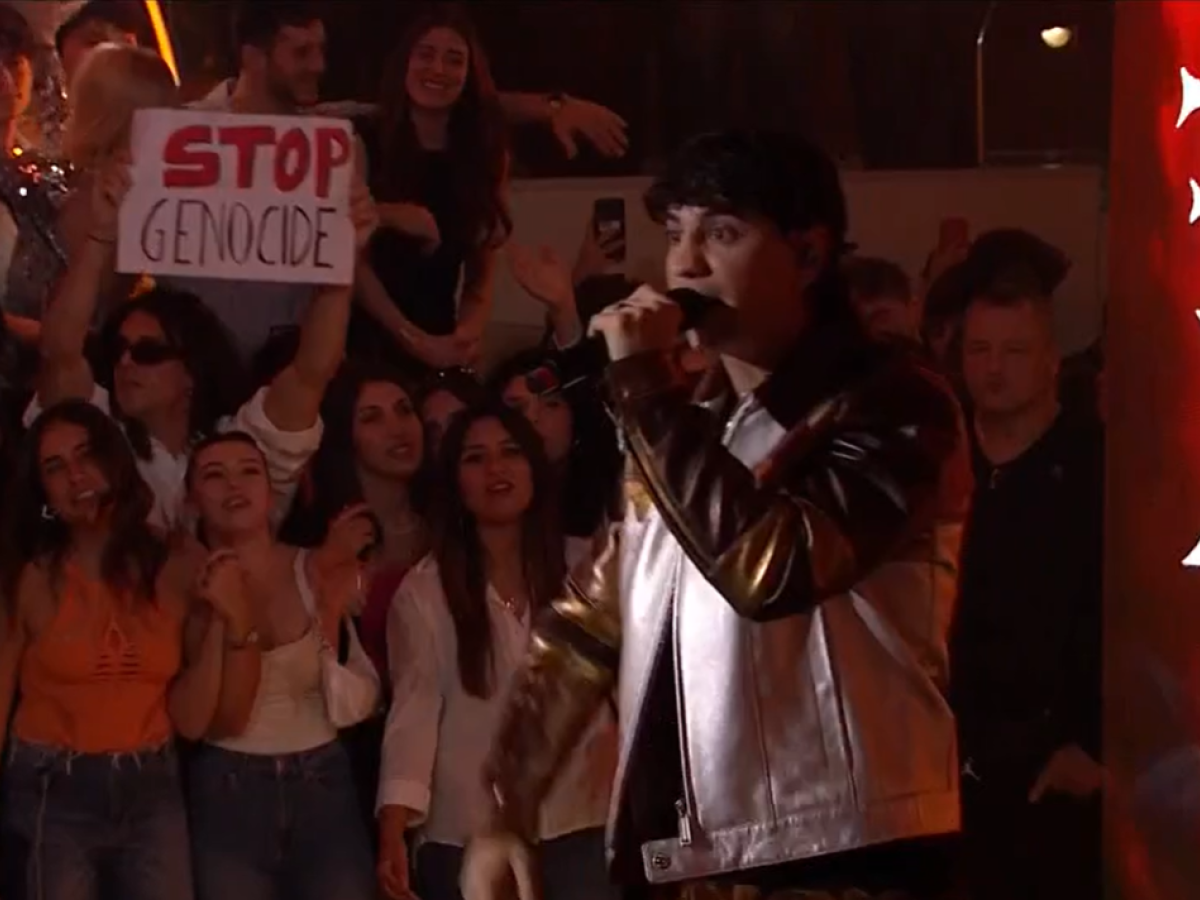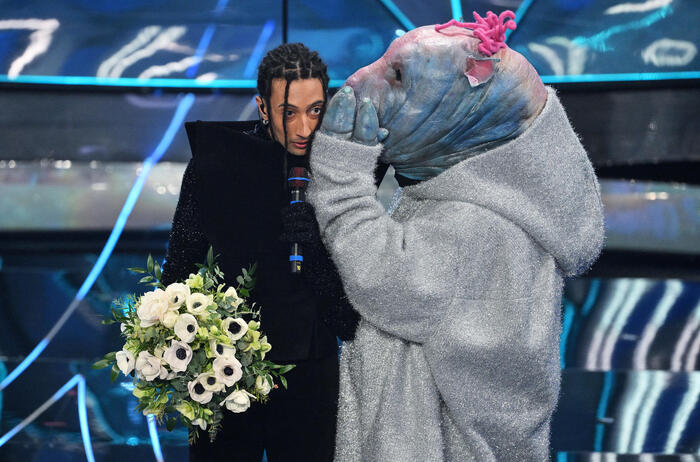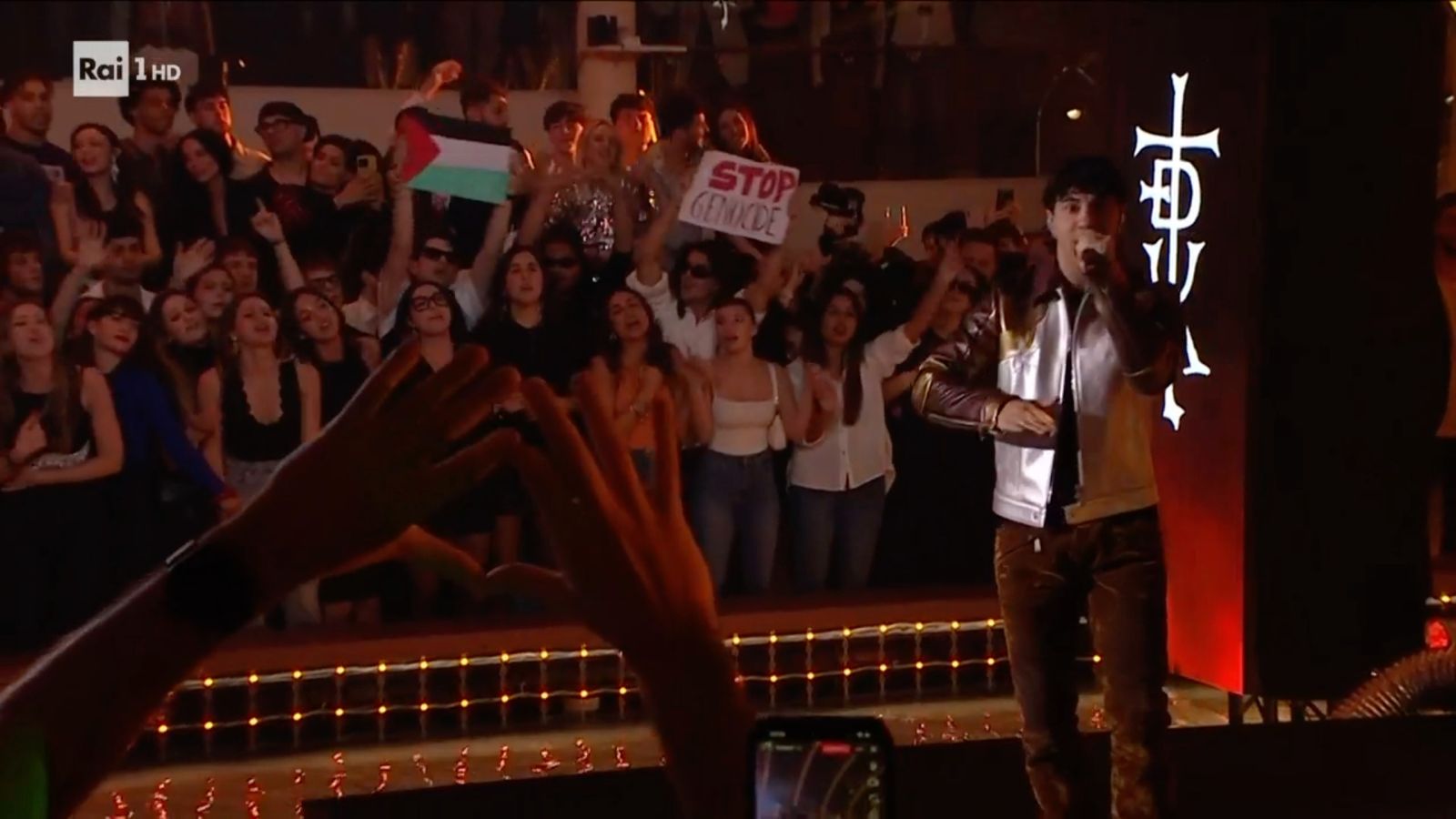The Sanremo Music Festival has become the latest venue to highlight Italian pro-Israel media bias regarding the ongoing conflict between Israel and Hamas in Gaza. Of the 30 artists who participated, only two conveyed a message of peace, and none explicitly mentioned Gaza, Palestine or Israel. Singer/rapper Dargen D’Amico called for a ceasefire, while rapper Ghali boldly declared, "Stop the genocide." This powerful statement marked Ghali's farewell to Sanremo 2024 following his final performance. The poignant words "Stop the genocide" not only echoed through the lyrics of Ghali's song, but also resonated with his heartfelt message regarding the situation in the Gaza Strip.
However, the response from the Italian Jewish community was contentious. Initially, objections were raised, particularly concerning Dargen D'Amico's remarks, which eventually led him to announce that he would refrain from discussing politics during the remainder of the Sanremo contest. Israeli Ambassador to Italy Alon Bar also weighed in, expressing his dismay at the exploitation of the Sanremo Festival stage in order to propagate what he said was hatred and incite provocations in a manner that he deemed superficial and irresponsible.
Maurizio Gasparri, a Forza Italia senator and member of the Rai Supervisory Committee, emphasized the significance of the ambassador's remarks, recalling the tragic October 7 massacre in Israel where over 360 young Israelis were killed and assaulted by Hamas during a musical event. Gasparri lamented the missed opportunity by RAI and urged the company's top management to extend apologies to the Israeli authorities, acknowledging the legitimate concerns raised by the Israeli ambassador.
In contrast, Sergio, the CEO of RAI, extended solidarity with the people of Israel. Reflecting on his experience during events commemorating the Shoah, Sergio underscored RAI's commitment to reporting on the daily tragedies faced by hostages held by Hamas and remembering the victims of the October 7 massacre. He expressed genuine and unwavering support for the Jewish community and the people of Israel, without mentioning the death of nearly 30,000 Gazans under Israeli bombardment
Ghali responded to Ambassador Alon Bar's criticisms by reaffirming his longstanding advocacy for the recognition of Palestine as a state, tracing it back to his childhood. He expressed disappointment at the ambassador's reaction, stressing the importance of being able to create a discussion and mediate with the ambassador on the recognition of Palestine and the pointless violence towards Gaza. Ghali, a musician at heart, emphasized his lifelong dedication to discussing such matters through his music. He criticized the ambassador's response, condemning the perpetuation of a politics of terror by Israel and the reluctance of Italians to advocate for peace. Ghali expressed deep concern for the innocent victims of conflict, mourning the loss of potential talents and contributions to society.
In my opinion, the true "missed opportunity” lies in the failure to uphold principles of fair and accurate reporting, particularly concerning the ongoing conflict in the region (since the 7th of October). This failure is exacerbated by the pervasive denial of the current genocide, perpetuated by a deliberate and voluntary decision to ignore the truth. This missed opportunity holds even greater significance considering the wide viewership of the five-day Sanremo contest, reaching approximately 70% of the population of Italy.
Fortunately, amidst this media bias, there were signs of dissent among the Italian audience. Signs calling for a ceasefire and an end to the genocide were visible in the front rows, along with displays of Palestinian flags. However, these signs mysteriously disappeared shortly afterward. It remains unclear whether they were forcibly removed.







